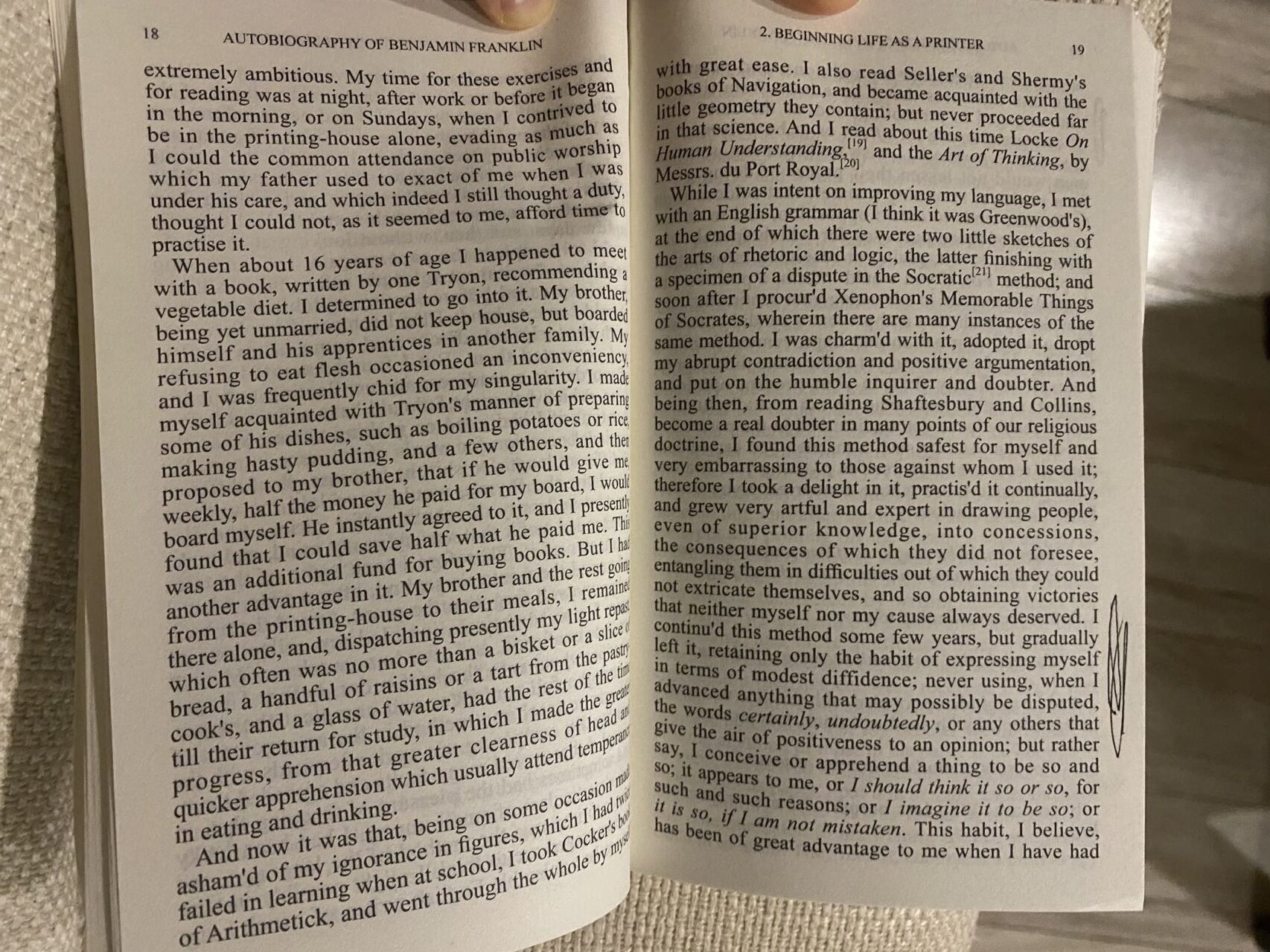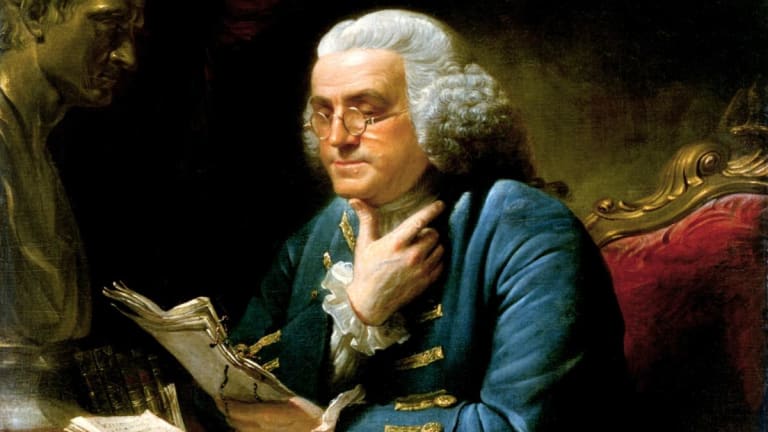Benjamin Franklin an Autobiography
I enjoy reading biographies of successful people. You can learn so much through the lives of others. What mistakes and challenges they had and how they overcame them. It gives a window into how that person thought and how they developed over time. It also expands the mind by looking at different time periods and different situations and gives me new perspectives and enables me to think bigger.
I have learnt a lot from this autobiography. I also like how he didn’t think so seriously and think that might have played a big part in his success.

Franklin’s prospects were dim. With 17 children, Josiah and Abiah Franklin could only afford two years of schooling for Benjamin. Instead, they made him work, and when he was 12 he became an apprentice to his brother James who was a printer in Boston. The printing business gave Benjamin the opportunity to read books and pamphlets. It was as if Ben Franklin was the one kid in the neighborhood who had access to the Internet. He read everything, and taught himself every skill and discipline one could absorb from text.
He frequently mentions how he likes to read and how it has helped him. Here is a passage where he introduces some of the books he read, and also the advantages of speaking modestly instead of too certainly. I think that we could benefit from this kind of style in our public conversations, politics, media and social media today.

Interesting how he says that he retains the habit of expressing myself in terms of modest diffidence; never using, when I advanced anything that may possibly be disputed, the words certainly, undoubtedly, or any others that give the air of positiveness to an opinion; but rather say, I conceive or apprehend a thing to be so and so; it appears to me, or I should think it so or so, for such and such reasons; or I imagine it to be so, for such and such reasons; or I imagine it to be so; or it is so, if I am not mistake. This habit, I believe, has been of great advantage to me when I have had occasion to inculcate my opinions, and persuade men into measures that I have been from time to time engaged in promoting; and, as the chief ends of conversation are to inform or to be informed, to please or to persuade, I wish well-meaning sensible men would not lessen their power of doing good by a positive, assuming manner, that seldom fails to disgust, tends to create opposition, and to defeat everyone of those purposes for which speech was given to us, to wit, giving or receiving information or pleasure. For, if you would inform, a positive and dogmatical manner in advancing your sentiments may provoke contradiction and prevent a candid attention. If you wish information and improvement from the knowledge of others, and yet at the same time express yourself as firmly fix’d in your present opinions, modest, sensible men, who do not love disputation, will probably leave you undisturbed in the possession of your error. And by such a manner, you can seldom hope to recommend yourself in pleasing your hearers, or to persuade those whose concurrence you desire. Pope (Alexander Pope – Poet) says judiciously,
“Men should be taught as if you taught them not. And things unknown propos’d as things forgot;”
Farther recommending to us
“To speak, tho’ sure, with seeming diffidence”
And he might have coupled with this line that which he has coupled with another, I think, less properly,
“For want of modesty is want of sense”
If you ask, Why less properly? I must repeat the lines,
“Immodest words admit of no defense, for want of modesty is want of sense.”
Now is not want of sense (where a man is so unfortunate as to want it) some apology for his want of modesty? and would not the lines stand more justly thus?
“Immodest words admit but this defense, that want of modesty is want of sense.”
This, however, I should submit to better judgements.
If you found the above interesting, you would probably like this blog post about the Benjamin Franklin effect, and they also have an interesting podcast that explores similar topics.
In the above passage, Benjamin Franklin mentions the following books which you can download as PDFs
Locke – On Human Understanding
Art of Thinking by Messrs. Du Port Royal
You can download more of these books for free online

Pingback: Social Media Addiction - Do you control it? Or it controls you?
Pingback: The Way of the Superior Man by David Deida Review - Richard Coward